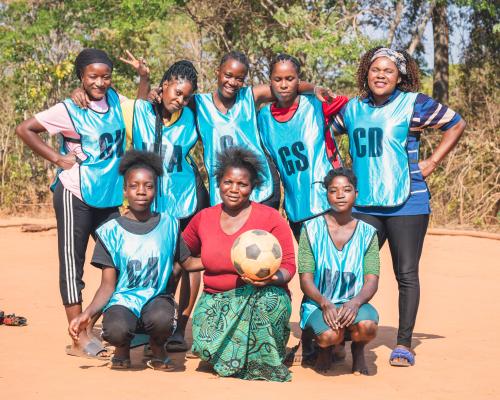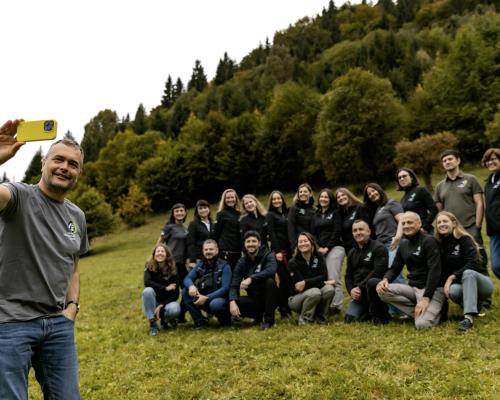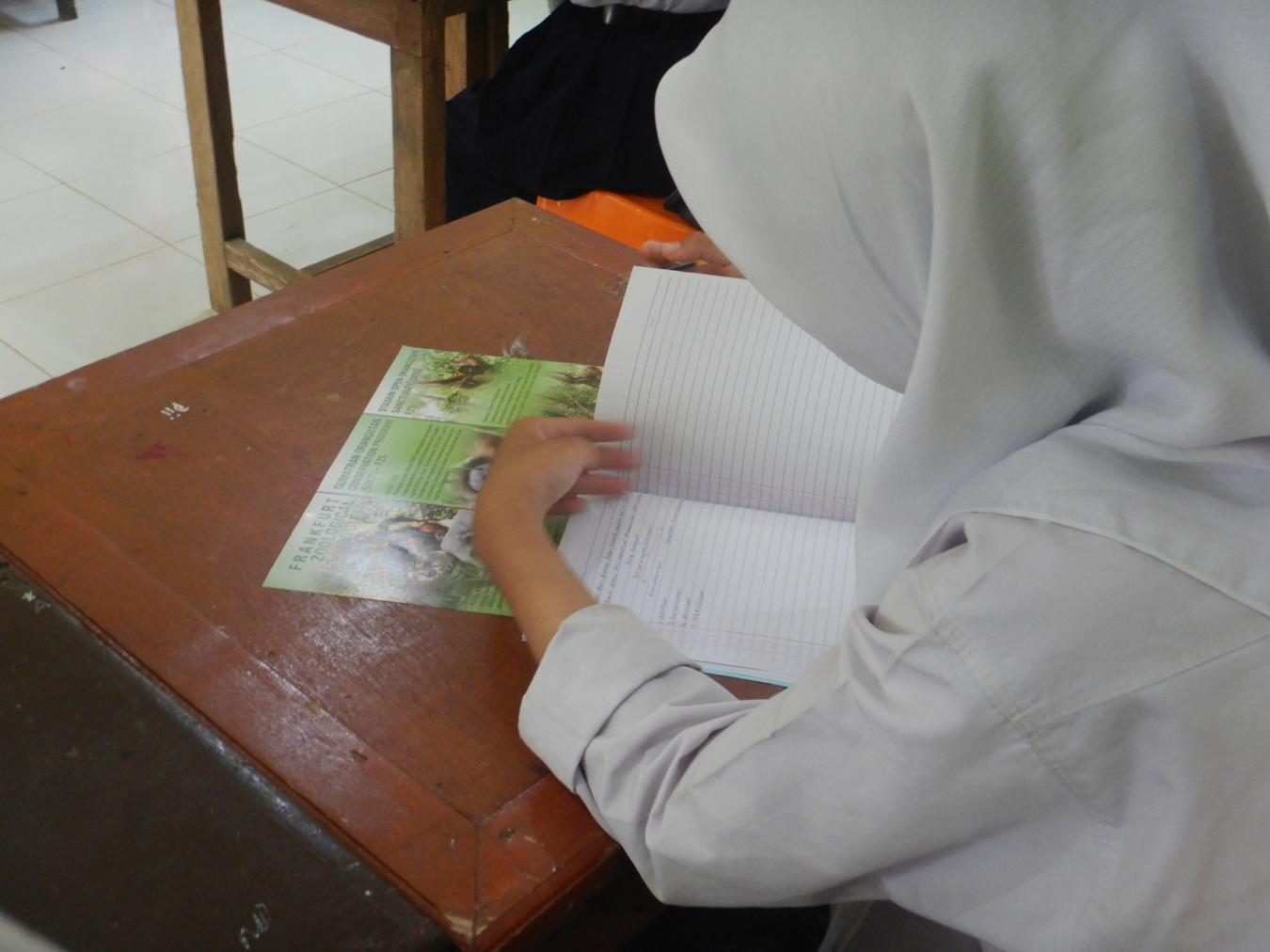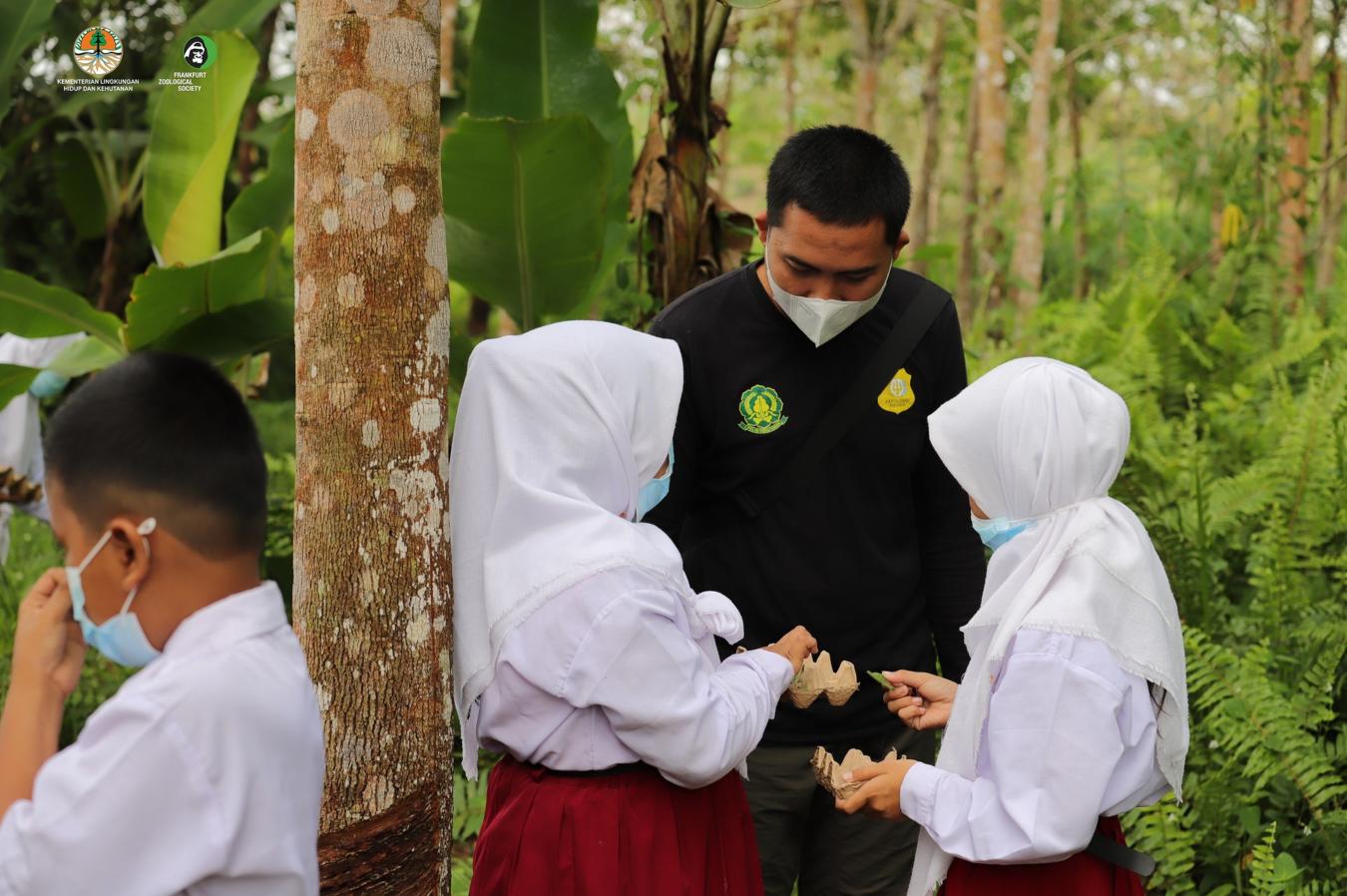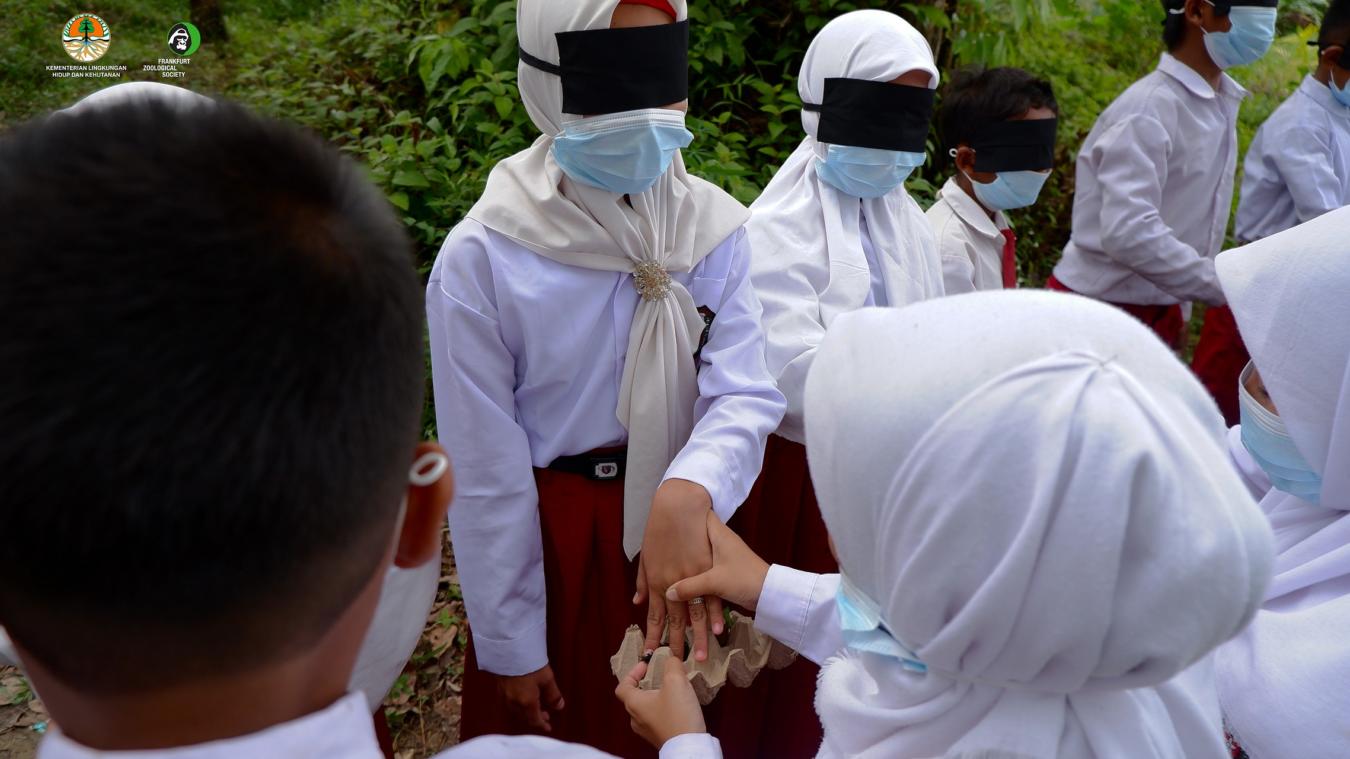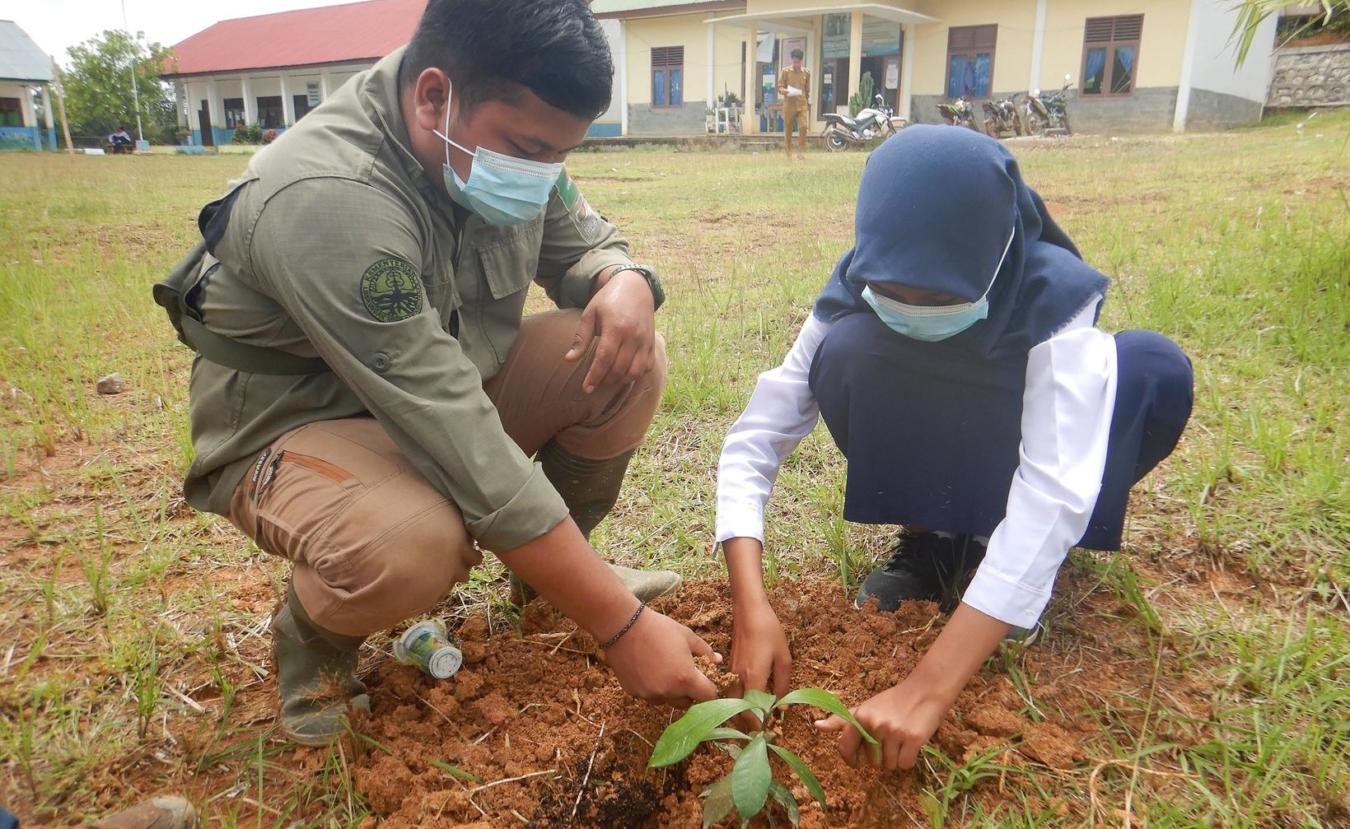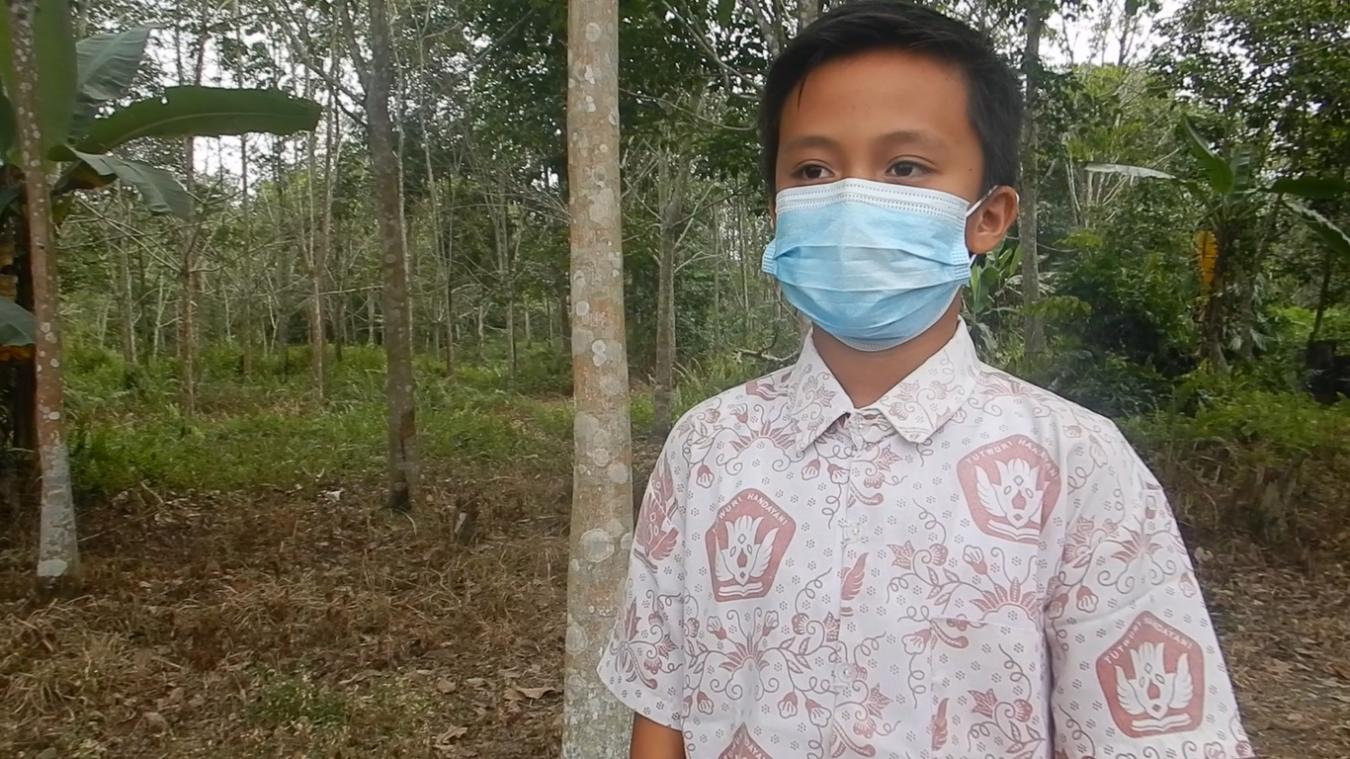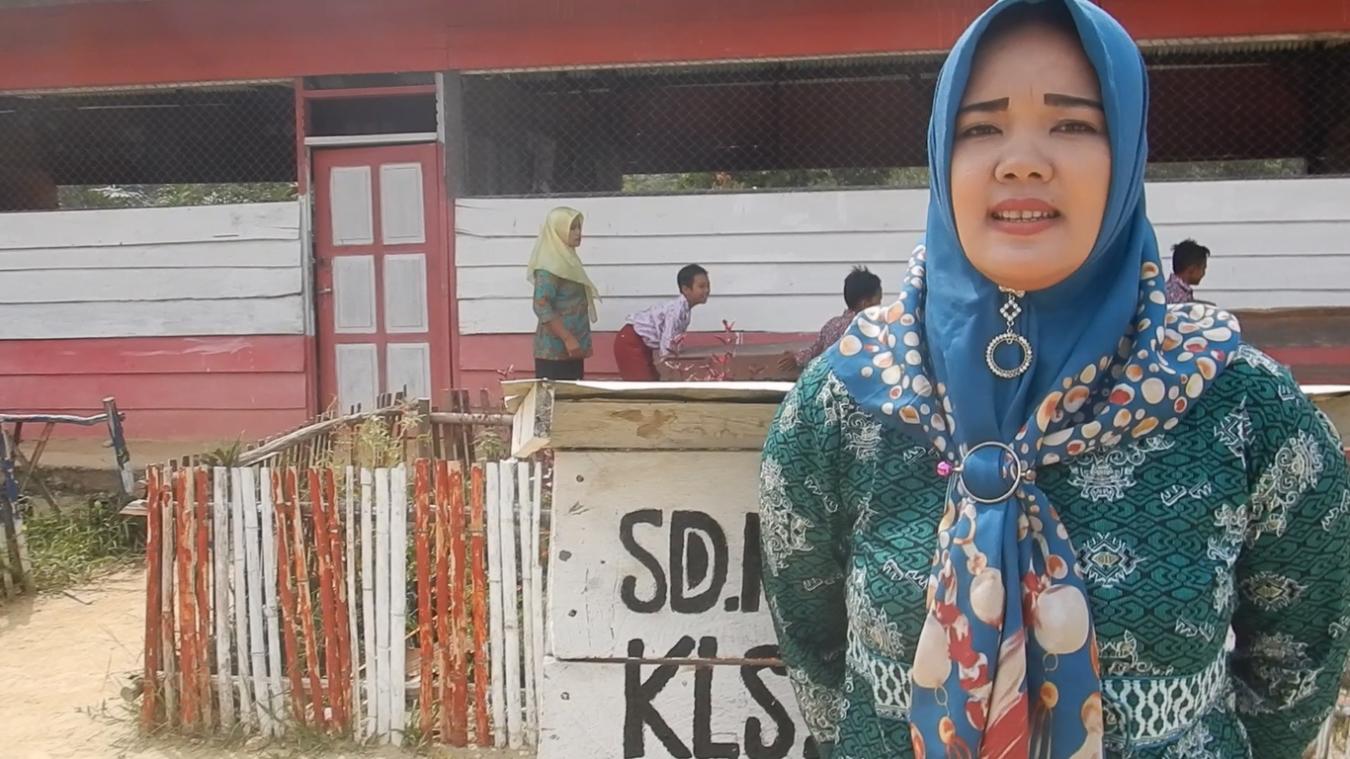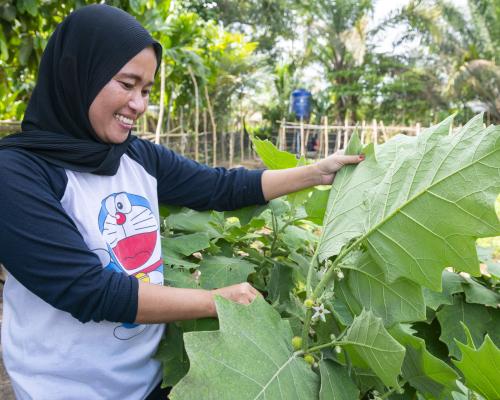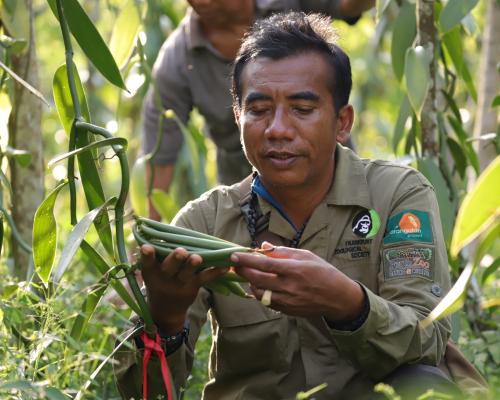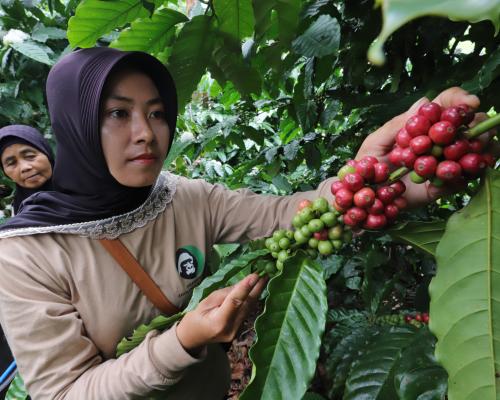The FZS team in Indonesia educates young students about the natural world and conservation through hands-on lessons.
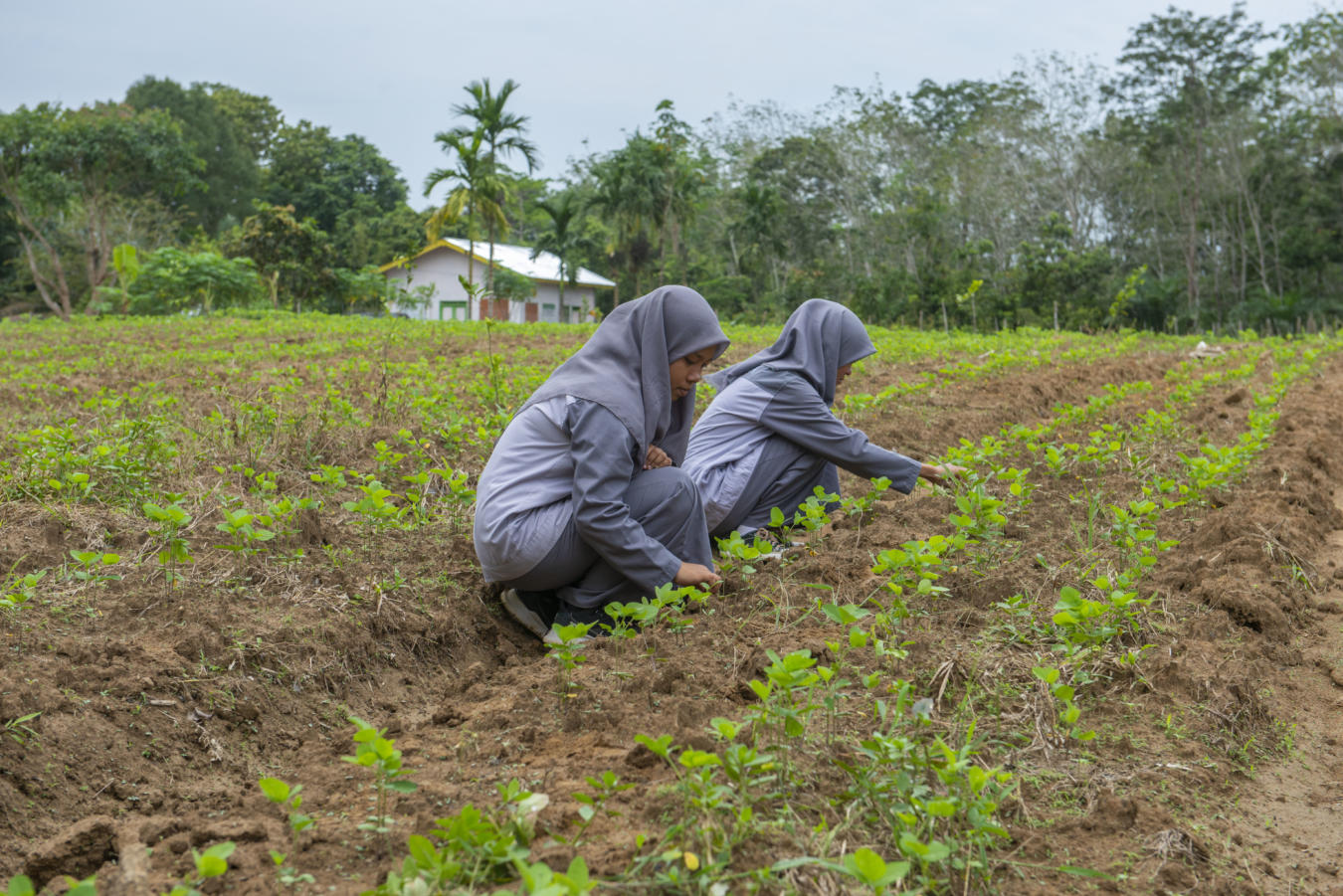
Conservation and the next generation
In the center of the Indonesian island of Sumatra lies a lowland rainforest that is a refuge for large numbers of rare species including Sumatran tigers, Sumatran orangutans, and Sumatran elephants. FZS has been working here since 2000, supporting the protection of Bukit Tiga Puluh National Park and the surrounding region. This includes wildlife conservation and offering support to local people who rely on a healthy natural landscape for a multitude of reasons, such as growing crops.
FZS Indonesia and local communities work together. For adults, FZS offers training opportunities about alternative income-generating crops. Growing oil palms is common practice in this area, but these plants need a lot of space to grow. Making space for these plants has been leading to high levels of deforestation. However, there are other crops that can be grown that can bring the farmers good income and which benefit the environment, a land-use system called agroforestry. In this part of the world, this includes plants such as pepper, and Gamal trees in combination with vanilla plants, coffee, and cocoa.
For younger generations, in 2009, the team set up a separate unit that travels to elementary and high schools called the Mobile Education Unit School Program on Environmental Education (MEU). As part of an agreement with the local government education department, the Unit develops and delivers lessons about the natural environment that are in line with school curriculums.
During the year, the MEU team visits 20 elementary, junior, high, and vocational schools that are close to the National Park in the Tanjung Jabung Barat and Tebo Regencies in Jambi. The selection of schools is based on the recommendations from the local government’s Education Office.
Lessons are adjusted to match the class level for each school they visit. For elementary school students (grades four and five) MEU classes are more interactive. The students engage in playful and interactive games outside the classroom which focus on observing and exploring natural elements around them such as trees, flowers, and animals. MEU leaders let the students examine the color, texture, and smell of those items and ask the youth to describe their experiences and what they have learned.
Abi, an 11-year-old 5th-grade student at SDN (State Primary School) shares what he has recently learned:
“We started with an introduction of the environment, such as forests and some protected animals, such as orangutans, elephants, tigers, and others. In addition, in extracurricular activities, we are also taught several ways to love the environment. Such as planting trees, caring for plants, and protecting the forest and the surrounding environment, especially at home and at school”.
For older students, lessons are slightly different. These students are taught beginner agroforestry. This includes how to prepare seeds, plant garden beds around the school yard, and how to propagate seeds and stems. Some of the plants they learn to cultivate include fruit and forest plants such as durian, mango, duku (lansium parasiticum), water apple, and meranti (Shorea sp.), gaharu (Aquilaria malaccensis), and sungkai (Peronema canescens). The children are also taught to plant and sustainably harvest trees.
MEU runs classes in 4–5-week segments for each school with program leaders visiting the schools every week. The purpose of the lessons is to help students gain a greater understanding of the natural world and how plants grow. Additionally, the lessons help with future planning, the students learn early on that it is possible to propagate and grow plants that can bring in a good future income.
The schools are very supportive of the MEU lessons. Riska Desrini, a teacher at one of the schools, shares what she thinks:
“FZS has directly helped our students be outside more which has helped us in this school so that we don’t miss out or can compete with other schools for environmental knowledge.”
Four people have come full circle with the MEU training. From being students between 2009 and 2014 to now working for the FZS Indonesia team. Some of those former students are teaching the next generation through the MEU team while others are rangers who help protect wildlife in the Bukit Tiga Puluh National Park landscape.






